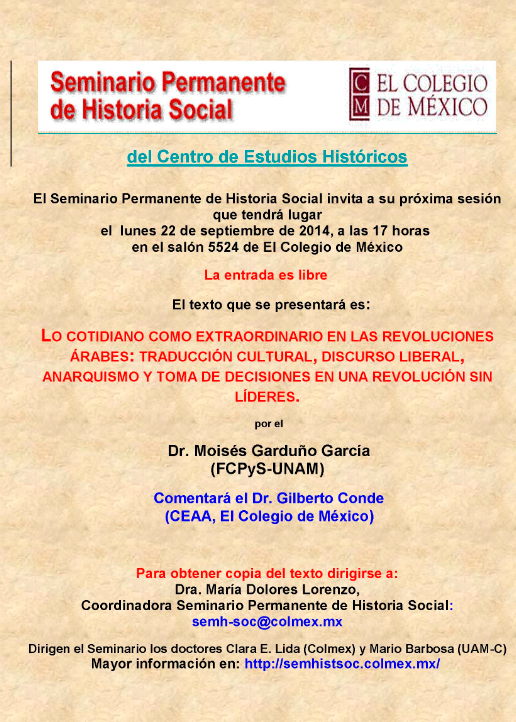Conference
Living, Consuming and Action in Glocal Palestine (Nablus, September 30th – 2nd October 2014
Presentation
More often than not, Palestine, characterised by conflict, is analysed through the sole lenses of its political or cultural idiosyncrasy. Yet, new ways of living, consuming and acting that are embedded in the global reality, have emerged in the previous years and remained understudied. This global dimension may be understood as an imposed and inescapable reality, yet it is also adopted, integrated, amended and applied to a local dimension, so as to create a purely Palestinian form of it. This conference seeks to explore the hybrid character of social and political experiences, caught between local and global, in a word to think about the notion of “glocal” in today’s Palestine.
The Israeli occupation, with its resulting territorial fragmentation and correlated confinement, further favours the resort to emerging global practices as a way to bypass or go around the spatial boundaries or the constraints imposed on Palestinian mobility, economy and local productions…etc. or as ways to resist. Globalising processes are not limited to overt effects of occupation and colonisation. Nevertheless, in some respects, today’s Palestine is the paradigm of the rapid changes that have been affecting the experience of space and time all over the world for a decade, with the speeding up and intensifying of flows, notably as a result of new ICT. John Collins develops such an argument and shows how the meaning of the Palestinian reality goes beyond the Palestinian case since the processes at work in Palestine in an exacerbated form (embedded in joint dynamics of technology, confinement, violence, and time acceleration) are structural elements of the larger globalisation phenomenon (2011).
These transformations are particularly visible and acutely felt in the Palestinian case due to historical reasons (diaspora) and new territorial, military and institutional arrangements that were set up in the Occupied Territories after the second intifada and the renewal of occupation techniques. On the one hand, the deepening fragmentation of space went hand in hand with a differentiated management of mobility and circulations, as well as a reinforced control over time and space of Palestinians (Latte Abdallah, Parizot, 2011). On the other hand, the violent occupation mechanisms have been progressively made invisible and intangible (Weizman, 2009) through postmodern and neoliberal control devices, involving global urban or institutional forms. As these shapes can be found elsewhere in the wild world, they ease the prolongation of occupation by visually trivialising it: the changes that occurred in some check-points’ architecture make them resemble airports terminals (Havkin, 2011) or toll gates; in some places, the Wall looks like any other sound-proof barriers found alongside modern motorways…etc.
This scientific event thus aims at studying emerging practices and experiences as well as various dematerialised ways that Palestinians resort to in order to move, mobilise themselves and live in and among territories and communities, whether real or virtual, in a context of fragmented sovereignty, inexistent State (or at the margin of a State). New technological tools, citizens’ engagement, ways of production and consumption evolve along with the development of the globalisation’s effects and potentialities.
This endeavour to think the junction between local and global experiences include the following themes:
- Spatial and urban transformations framed in global urban expressions that are, in some cases, in relation with the Israeli occupation / and the new technological tools, virtual, visual, artistic, architectural and urbanistic practices constituting alternatives.
- New contentious politics and citizens’ engagement that are borrowed from global referentials (such as the discourse on Human Rights, new sexuality-based political expressions, renewed ways to make use of law, local, artistic mobilisations or new virtual forms of political actions).
- Changes that occurred in the conditions of production, as a result of the globalisation but also of the expansion of agricultural and industrial production from the settlements; innovative forms of production, at the junction between politics and savoir-vivre, (local products- baladi, organic products, “made in Palestine”, fair trade, resistance economy -iqtisad al-sumud) / environmental practices (sustainable development, ecotourism…etc.).
- Consumer practices and emerging associations for alternative or citizen consumption.This event will gather mostly researchers and PhD students in social sciences specialised in Palestine but will also pursue a comparative approach by resorting to other cases in the Middle East, North Africa or Europe. The conference also aims at confronting various approaches at the crossroads between art and science, research and action; it will create the frame for a dialogue between social sciences and the works of artists, architects as well as the new actions and philosophy of citizen and activist societies.
Scientific Coordinators: Joni Aasi (Al-Najah University), Stéphanie Latte Abdallah (IFPO/CNRS)
Organizing Committee: Akram Daoud (Law Department/Najah University), Johni Aasi (UNESCO Chair, Al-Najah University), Stéphanie Latte Abdallah (Social Sciences, IFPO/CNRS), Najla Nakhlé-Cerruti (Arabic Studies, IFPO), Elsa Grugeon (Social Sciences, IFPO), Ghassan Khaled (Law Department, Al-Najah University, Marion Slitine (Social Sciences, IFPO), Raed Nierat (Political Science Department, Al-Najah University), Xavier Guignard (Social Sciences, IFPO), Claire Beaugrand (Social Sciences, IFPO), Fadi Jumaa (Political Science Department, Al-Najah University), Dalila Boualam (Social Sciences, IFPO)


